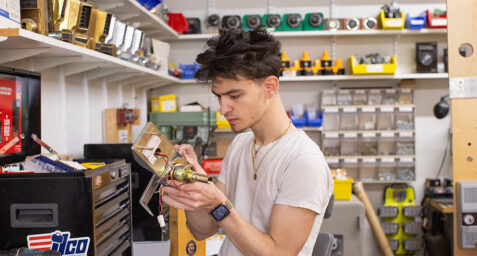Juliana Heck CF ’24
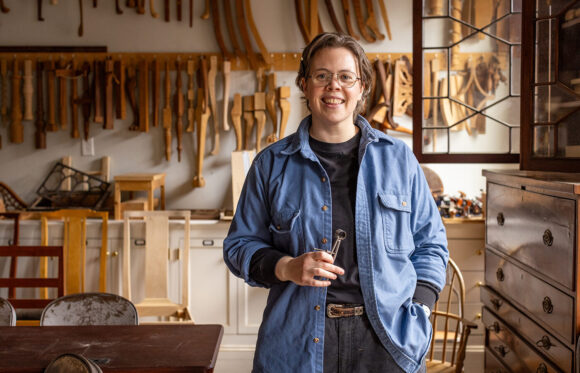
“Why not this life?”
Cabinet & Furniture Making ’24
Age 36
Waltham, MA
After earning a bachelor’s degree in art history at Saint Louis University, Juliana worked as a barista, bartender, and community organizer in Missouri. She loved to keep busy and was always on her feet. While working a rare sit-down gig at a public library, she started reading up on woodworking. Juliana thought, ‘In another life, I would have been a woodworker.’ Then she thought, ‘Why not this life?’
What did you do before coming to train at NBSS?
I majored in art history at Saint Louis University in Missouri. At that point, my education and learning about the world had all been done in a classroom. It was very formalized. I liked the community in St. Louis and felt at home there, so I stuck around for 15 years working in various restaurants and community organizing. I was a barista and bartender and worked back-of-house in restaurants.
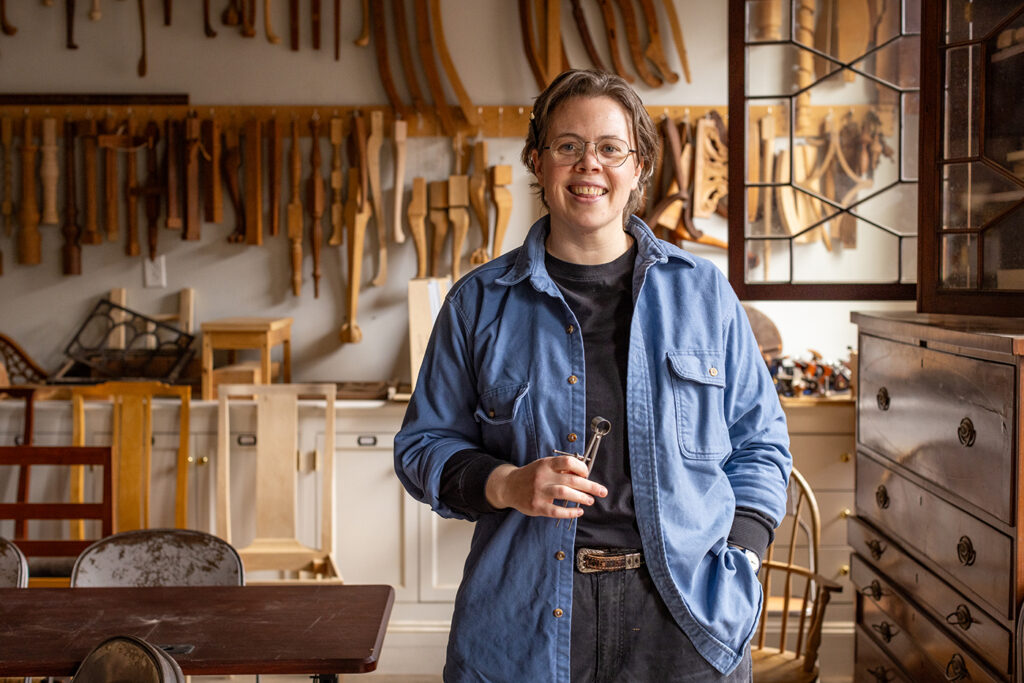
I loved the pace of constantly moving, learning, and building muscle memory. I really enjoyed that part of my life. It was helpful having that time of practical education based in reality, moving through a community, and figuring out that the things I learned in school sometimes aren’t what I need every day to be a functioning member of society.
There are all these disparate parts of my background, but I can totally see today the throughline that led me to woodworking.
When/how did you discover your discipline/field?
At one point, I wanted to give my body a break from physical work 14 hours a day. So I thought maybe a sit-down job was for me and got a job at a public library in St. Louis. It drove me absolutely nuts! I couldn’t sit still. But there was so much information all around me, so I started reading a lot, including woodworking books.
I thought, ‘In another life, I would have been a woodworker.’ And then, I had this moment of, ‘Why not this life’?
So I got a woodworking job. The only place that would hire somebody who didn’t have any training was a cabinetry shop an hour away from my house. And it was me and 10 rural Missouri guys, and there was a big culture shock. But I wanted the information enough that it was a worthwhile place to be at the time.
I eventually got a summer job for two years at Heartwood School for Homebuilding Crafts in the Berkshires. My wife and I cooked lunch for the participants and maintained the schoolhouse in exchange for me attending the timber framing classes. It was the exact right life that we wanted, where woodworking was incorporated into daily living. It ticked a lot of boxes that I was missing in my previous carpentry jobs, because it got me into hand tools.
Using hand tools, I knew why we do what we do, because I could feel the difference. The immediate feedback is important. When you only use machines, you don’t know the properties of wood because the cutting action is happening inside a box that you can’t see.
The timber framers had told me that if I was interested in historic woodworking, I should move back to the East Coast where there are more examples and more work. So my wife and I moved to Massachusetts, and I worked for a residential general contractor doing finish carpentry and cabinet installation in the Boston metro area.
Why did you choose to invest in training for a new career?
I was reading as much as I could about woodworking and hand tools. But I would go to job sites, and they would say, ‘Oh no, hand tools aren’t where it’s at unless you want to go back 200 years—we have all these new, high-tech tools.’
But there were simple solutions that they weren’t reaching for because they didn’t have the hand skills. We would order expensive specialty blades to do something a chisel could do. I realized that if I relied on on-the-job training, I would only get taught enough to be helpful in this business—which doesn’t necessarily translate to the best education. Why wouldn’t I want multiple ways to solve a problem?
When you’re using a hand tool, the wood is stationary and you’re moving. Whereas, when you’re using machines, you’re asking the wood to move through the stationary machine, which means you’re trying to balance this bulky, heavy piece of wood, or you’re holding a big machine that if you let go, the blade could go crazy. So you end up contorting your body in these weird positions that are not good for your back. With a hand tool, if you realize you’re standing wrong, you can stop, move your body, and keep going. And it’s a low-level workout all day, which is not a bad thing. You can do it for decades.
North Bennet was mentioned in a lot of my reading material, and people who I admire had come here or referenced its worthiness. I knew that I needed an instructor to watch me, notice any bad habits, and nip them in the bud. And I wanted agency with my career and to offer the best services to clients. North Bennet was the obvious next choice.
People think high-tech is better, but some things can be done faster, easier, and more simply with a hand tool. Knowing these skills now, I feel I’ve unlocked something huge. That’s why I came to North Bennet.
What are some ways you have felt supported during your time at School?
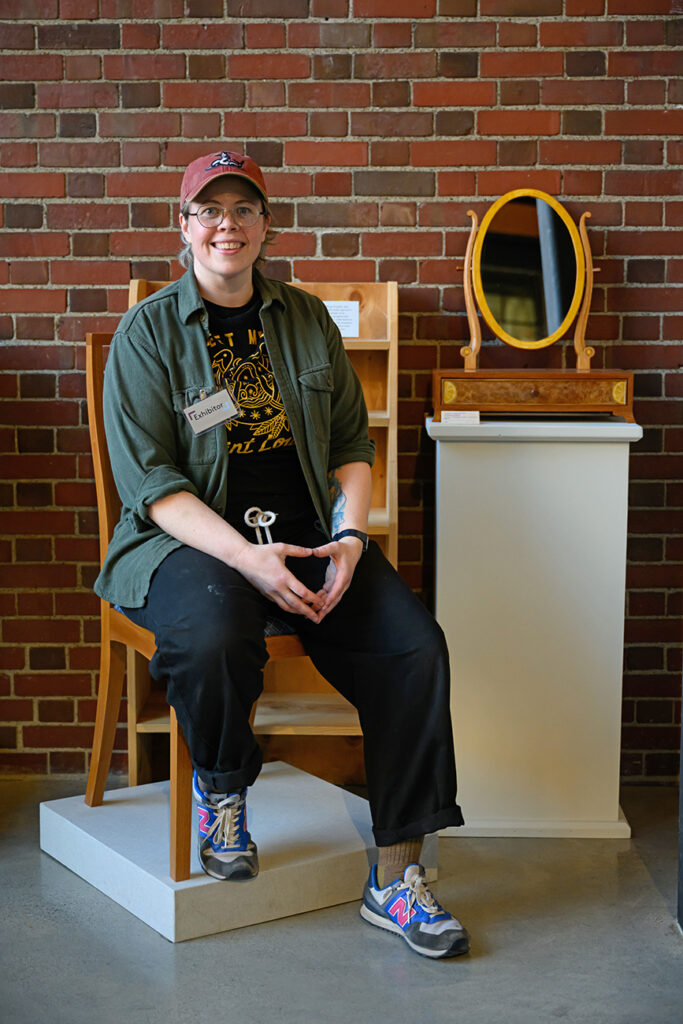
Before I knew that there was financial aid available, I thought it would be impossible to attend North Bennet. I couldn’t take two years off making money to spend money. But Rob O’Dwyer, Director of Admissions & Enrollment, scheduled time to talk to me on the phone, and we spoke for 45 minutes. He never seemed rushed, made sure that I had all the information I needed, and invited me to come on a tour. He was a very active listener and wanted to understand why I wanted to come to North Bennet and to guide me in the right direction. During the tour, I could tell that the students and instructors were enjoying their days—and that’s not often seen at a school.
The financial aid I received allowed me to go to North Bennet. And the School understands that you have a life outside and you want to be here, so how can we make that work? Anytime something has come up financially, they’ve worked with me to find a solution. It has made the difference between me staying and having to leave.
At North Bennet, everyone is an advocate for you to be able to go there. We all had the same goal, and that was for me to be there.
How do you feel at the end of a full day in the shop?
It’s the ideal frame of mind. Similar to making food, it’s nice to have physical proof of a satisfying day and to see the progress from yesterday. It feels great to be using my brain to solve problems and then have it acted through my hands. Using the whole body to come up with solutions is important to my value system.
As a kid, I played volleyball and softball. I preferred getting information on the go rather than sitting. That training as an athlete speaks to hand-tool work because it’s all muscle memory. The first time you do a skill as an athlete, of course it’s bad! Because you don’t know how to do it yet. But practice is a huge component. As adults, most of us are scared to make mistakes or fail at something the first time. But you’re not going to know how to do something the first time. Kids know this.
Being a lifelong student and having a sense of curiosity is crucial to feeling good. The moment you think you know everything about the world, you only have space to judge it.
What’s next for you?
I would eventually like to work for myself, but I have more to learn first. I am a TA for a summer NBSS woodworking class for conservators, and I’ll be taking local commissions, like repairs and finish restorations.
I also have my own design ideas. My wife and I have always lived in one-bedroom apartments and consciously have a pretty small life. We’ve moved a handful of times and had to throw out and re-buy cheap furniture because it just doesn’t hold up during a move.
People often buy the best furniture they can but it’s still not good quality because of how the furniture industry operates right now. Every time they come home and sit on that couch that looked good in pictures but isn’t, they subconsciously think, ‘I make bad choices.’ But it’s happening because that’s what’s available. And we deserve more than that.
That’s been a problem in my life that I want to answer. So I want to design solid, affordable pieces of furniture for small apartment living. The designs will be made to break down, or become their own moving storage containers, and click into place. If you have a well-made thing, you’re more likely to want to keep it around and move it to your next place. When you ask yourself, ‘Is this worth throwing in the U-Haul and trucking cross-country?’ I want the answer to be, ‘Yes.’ Everybody deserves to come home to comfort, regardless of their financial situation.
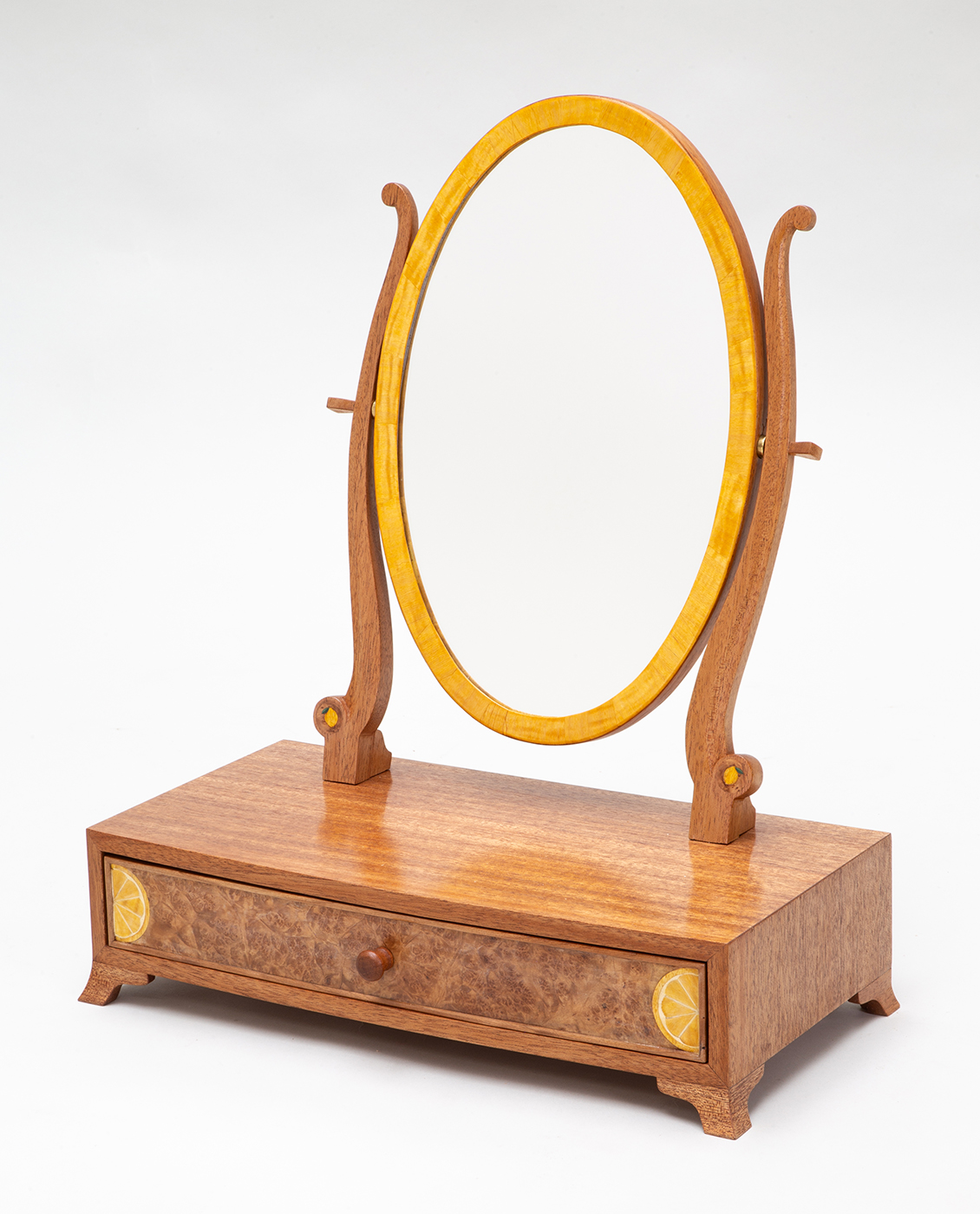
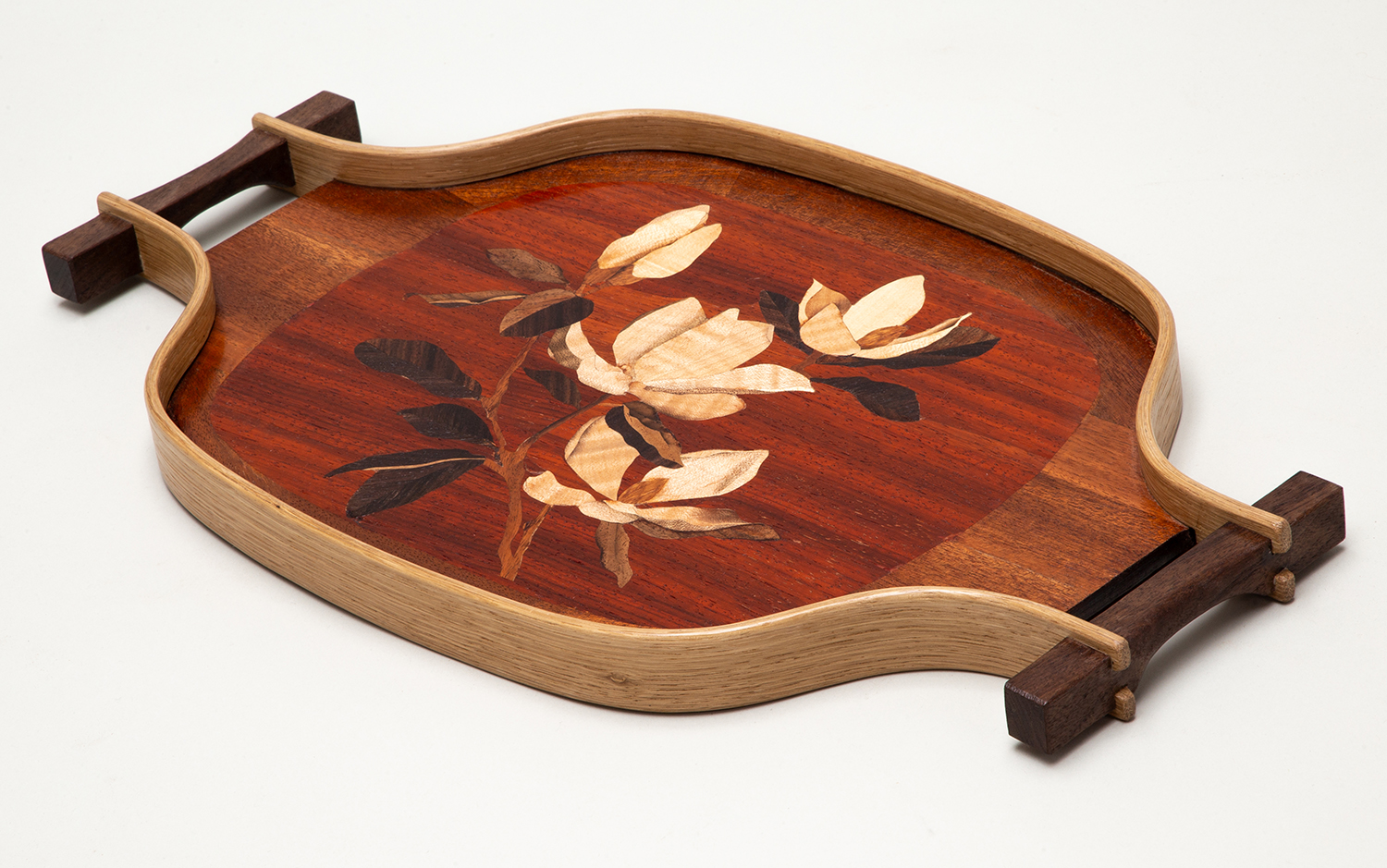
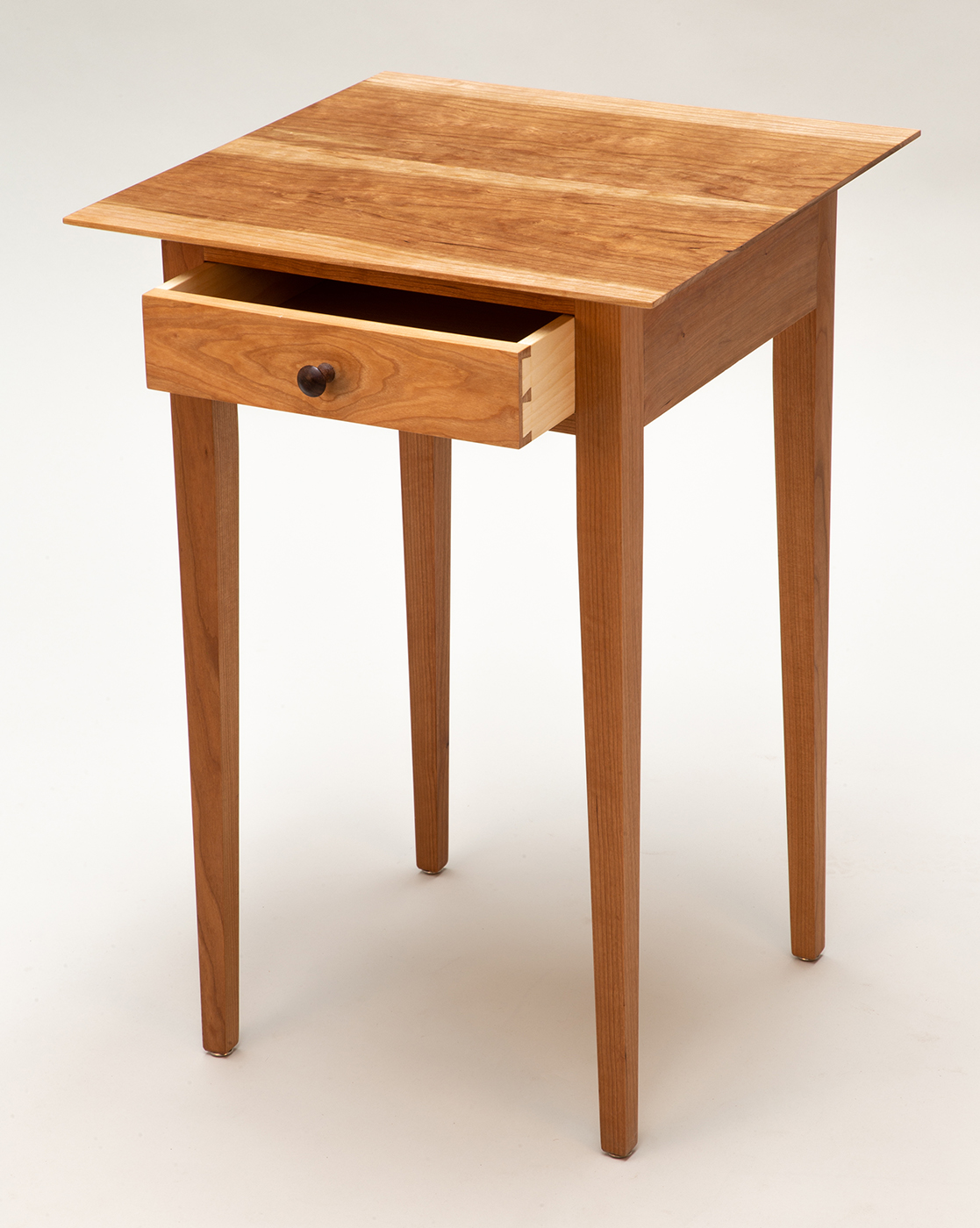
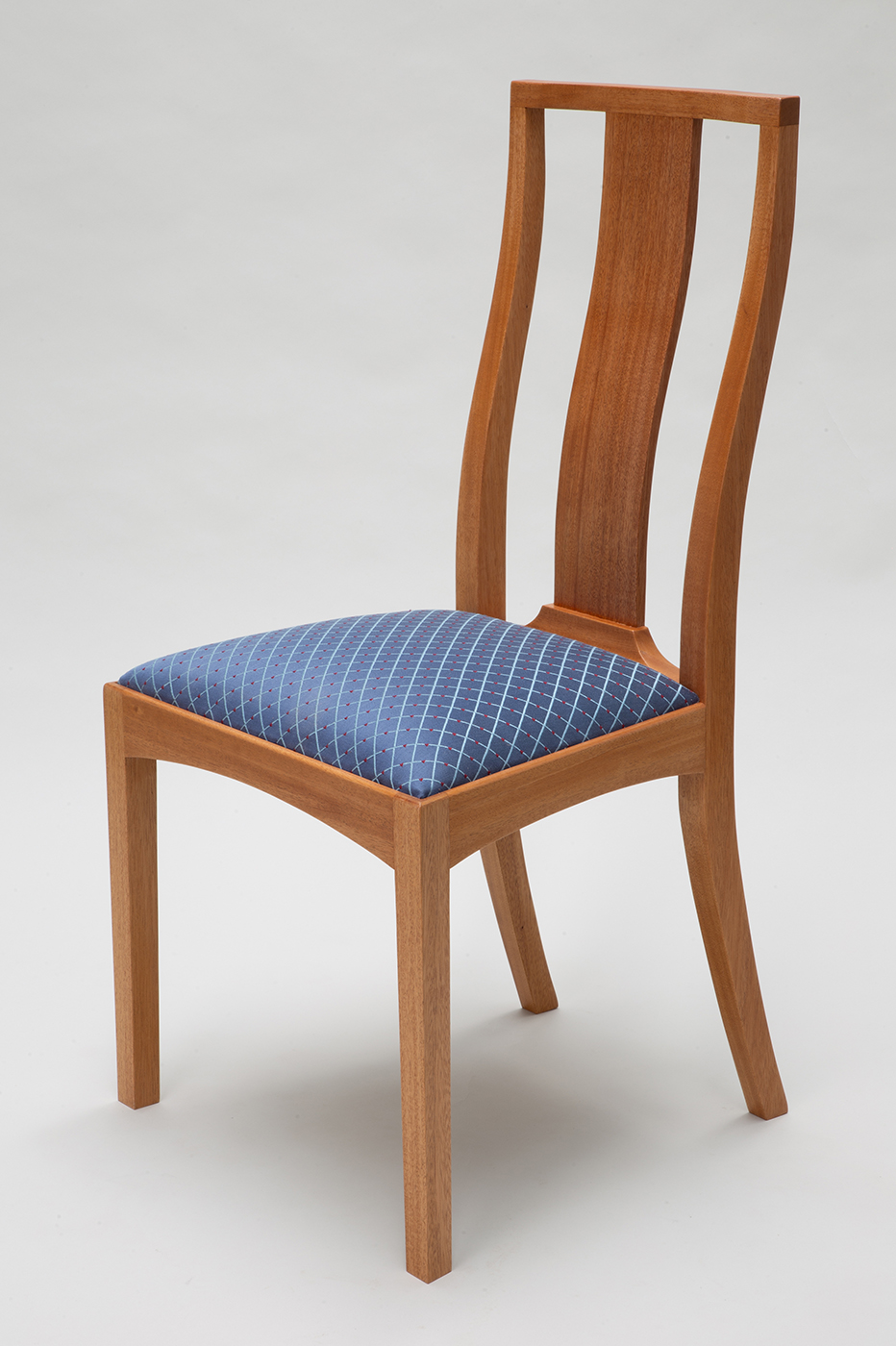
What is one of your favorite places for lunch near NBSS?
Bricco Salumeria. It’s down an alleyway one block from School, and it is so great.
What is one of your favorite places at NBSS?
The CF department reference library. I love books, and this library has all the answers you need.
What’s one of your favorite places in or around Boston?
Boda Borg in Malden, Massachusetts. It has all these different escape rooms and quests. There are no directions given, and it’s a combination of physical and mental problem-solving, which I love. I also like that the person who usually steamrolls has to listen to others, and a quieter person might have a skill that no one else knows about until they’re all in one of these rooms.
What’s your favorite, tool, machine, or material?
Dividers for getting ratios. Scrapers and rasps for shaping wood.
What is one of your favorite experiences at NBSS?
The CF department does a great job of having alumni come back and talk about what they’re doing and showing us the options of what we can do after North Bennet. Paula Garbarino CA ’80, CF ’88 taught here for a while and has a furniture building and marquetry practice in Somerville, Massachusetts. Marquetry for me is something that has always been filled with mystery and intrigue. And Paula was just an excellent teacher. I appreciated opportunities like that to have alumni interactions and hear that someone ended up in a completely different place than they expected, but loves what they’re doing.
This story is from our Summer 2024 issue of Benchmarks magazine. View more issues.
